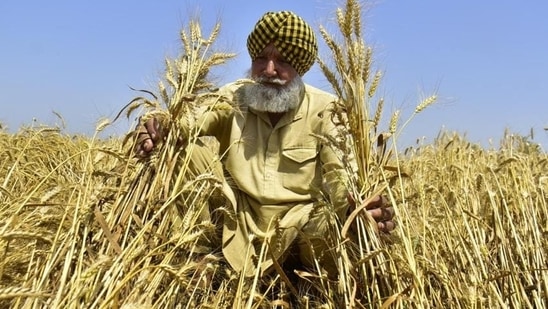Impact of crop diversity on dietary diversity among farmers amidst Covid-19
The study has been authored by Aditi Roy, PHFI
Crop diversity is thought to have small, positive impacts on dietary diversity among farming households, particularly when market access is restricted. Policy responses to the Covid-19 pandemic severely restricted market access. To date, no study has explored the relationship between crop and dietary diversity in this context. To address this gap, we used longitudinal data collected from 833 farmers across 12 states in India at three time points between May and August 2020.

Dietary diversity was measured using a modified version of the FAO Minimum Dietary Diversity score for women, which has been used in representative samples of the Indian population in both men and women. Eight food groups were included: (1) starchy staples (rice, wheat, and potatoes), (2) pulses, (3) nuts, (4) vegetables, (5) fruits, (6) dairy, (7) eggs, and (8) fleshy foods (meat, poultry, and fish). Multivariate polynomial logistic regression was used to estimate the association between crop and dietary diversity. Models were adjusted for educational attainment, caste, farm size, having a kitchen garden, and livestock ownership. Participants were, on average, 42.2 years old and 94.2% were male.
Dietary diversity decreased over the study period, especially between baseline and follow-up 1, when lockdown measures were the most restrictive (34.2% of participants experienced a decline compared to 16.1% from follow-up 1 to follow-up 2). Compared to farmers who cultivated 1 crop (monocroppers), farmers who cultivated 2 crops or 3 or more crops were significantly less likely to experience a decline in dietary diversity from baseline to follow-up:Aadjusted relative risk (RR) (95% confidence interval [CI]), 0.52 (0.35, 0.78) and 0.48 (0.31, 0.75), respectively. There was no significant association between crop diversity and change in dietary diversity from follow-up to follow-up 2, when phased re-opening had begun.
These findings suggest that farmers with greater crop diversity in India were more resilient to market disruptions from the Covid-19 pandemic. Thus, while the links between crop and dietary diversity may be small under normal circumstances, diversifying production systems may play an increasingly important role, as there is greater uncertainty due to global events such as pandemics and climate change.
About half of farmers had a kitchen garden. These farmers were significantly less likely to experience a decline in the number of food groups consumed throughout the entire lockdown period.
Dr Aditi Roy, a research scientist at the Public Health Foundation of India and senior author on the study said, “Our study provides yet more evidence for supporting policies and programs on kitchen gardens in India to improve diet quality. We need objective, systematic evaluation of nutritional and health impacts of these programmes.”
Kaela Connors, a Master’s student at Harvard University and lead author of the study, said, “Our findings clearly demonstrate that diversifying production systems may be important for safeguarding nutritional security in the event of other large-scale global shocks such as future pandemics and climate change. This has important implications not only for India, but other parts of the world where monocropping is the predominant form of agriculture.”
The study has been accessed by clicking here.
(The study has been authored by Aditi Roy, PHFI)



